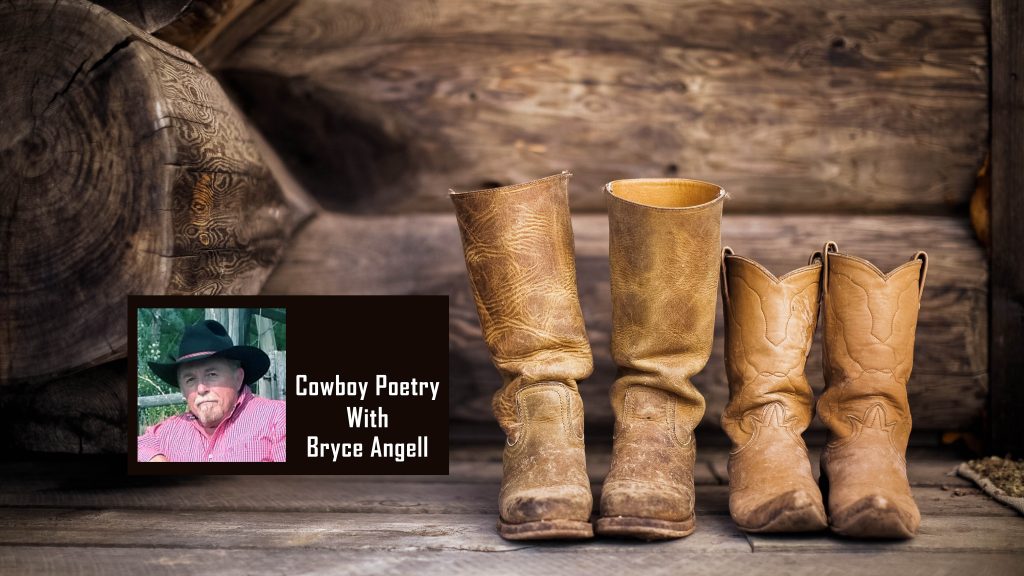
Bryce Angell is a cowboy poet. Angell was raised on a farm/ranch in the St. Anthony, Idaho area with approximately 75 head of horses. Horses remain an important part of Angell’s life.
Angell shares his poetry with Cache Valley Daily every Friday.
The lake was frozen over with a brand-new foot of snow. The trapper’s horse held steady yet was stoked and set to go.
Sol’s home was now on Staley Springs. They’d started a new life. He had three kids, all under eight, Maria was his wife.
If coyotes wandered on the lake and came into his view; he’d trained his horse from birth to worth. Sol’s horse new what to do.
The coyote came within their reach. The trapper gave the cue. Now, Tucker bolted to the lake. The coyote’s time was due.
The predator was slowed way down. From a foot of newborn snow. While Tucker and the trapper were advancing, not too slow.
The trapper saw the coyote stop, just ten feet up ahead. The coyote’s time was running short. His next hop, he’d be dead.
Then Sol soon felt a sudden lunge as Tucker went down under. They’d broken through the thinner ice. Now both were in the water.
Sol knew too well their fate to be, and what a way to go. They’d freeze to death in water. Then sink ten feet below.
The thought of his Maria and the children made him cry. How could they stay alive without a father’s watchful eye?
Sol thought he heard their Holstein cow. Her bell gave her away. Maria had been watching and showed up to save the day.
Maria tossed a rope on Tucker, then to Sol she went. She threw a rope and pulled him out. Her Sol was dang near spent.
Sol, Maria and their cow then pulled with all their might. They pulled poor Tucker from the hole, weak but still had fight.
Maria took old Tucker and she put him in the shed. She wiped him down, then made him warm, so glad he wasn’t dead.
She made it to the cabin and found Sol right by the fire. She growled at him and firmly spoke. Her voice was filled with ire.
“The next time this old lake claims you, you’re going to feel the sting. ‘Cuz, when I come to get you, it’ll be later in the spring.”

